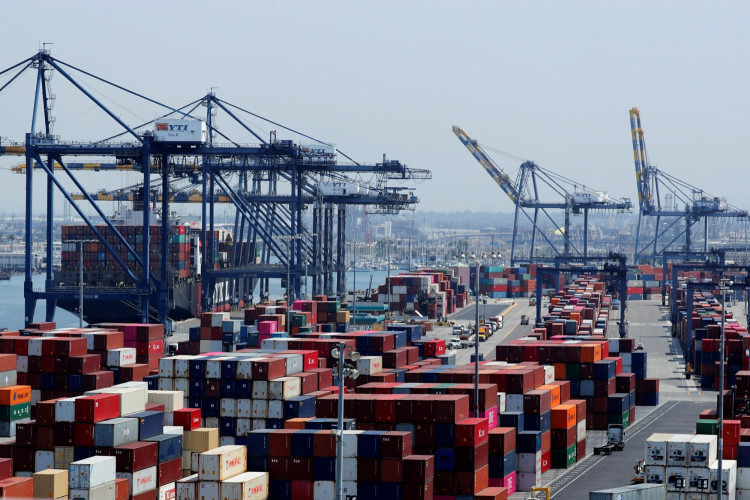The risk of recession in the United States, Canada, and Mexico is growing as U.S. trade policy remains in flux, according to a survey of economists conducted this week. The Trump administration's abrupt implementation and subsequent suspension of 25% tariffs on imports from its North American neighbors have created widespread uncertainty, leaving businesses and financial markets struggling to predict the economic outlook.
In the U.S., inflation concerns have worsened, prompting the Federal Reserve to hold off on rate cuts for the foreseeable future. Nearly 70% of economists polled raised their 2025 inflation forecasts, with 85% of respondents citing a higher risk of near-term price increases. Meanwhile, 70 out of 74 economists said the likelihood of a recession in their respective economies had increased, pointing to weakening consumer confidence and unpredictable trade conditions.
"Given this is so uncertain and that there are new announcements every hour or so, it's kind of unclear what the environment is going to look like," said Jonathan Millar, senior U.S. economist at Barclays in New York. "It's hard to deny the risk of a recession has intensified."
The seesaw nature of the tariff announcements has also rattled Wall Street. The S&P 500 index has erased all of its gains since Trump's re-election in November, and the U.S. dollar has weakened, with the euro and British pound gaining four cents against the currency since late February.
Speaking with Fox News on Sunday, Trump declined to rule out a U.S. recession, instead characterizing the economy as being in a "transition" due to his trade policies. "I hate to predict things like that. There is a period of transition because what we're doing is very big. We're bringing wealth back to America. That's a big thing," Trump said.
Pressed for clarity on whether businesses should expect additional tariffs, Trump suggested the possibility remained open. "The tariffs could go up as time goes by and they may go up," he said. "But for years, the globalists, the big globalists have been ripping off the United States; they've been taking money away from the United States. And all we're doing is getting some of it back. And we're going to treat our country fairly."
In Canada, the uncertainty has left economists unable to forecast the outcome of the Bank of Canada's March 12 rate decision. A majority of economists surveyed expect a 25-basis-point rate cut, but many note that market conditions could shift dramatically depending on future tariff decisions. "There are a lot of things that are currently on pause as we all are trying to figure out what's really going to happen," said Claire Fan, senior economist at RBC in Toronto.
The International Monetary Fund has warned that prolonged tariffs would have a "significant adverse impact" on both Canada and Mexico, where economic growth has already slowed. Mexican investment firm Invex noted that investor uncertainty will persist "as long as Donald Trump remains in office." Meanwhile, analysts at Actinver, another Mexican investment firm, cautioned that the country's central bank, Banxico, may hesitate to cut rates further if inflation picks up as a result of trade disruptions.
Beyond North America, global markets remain jittery. Monday's sell-off in Asian and European equities followed news that China had slipped back into deflation in February, reflecting continued weakness in global demand.






